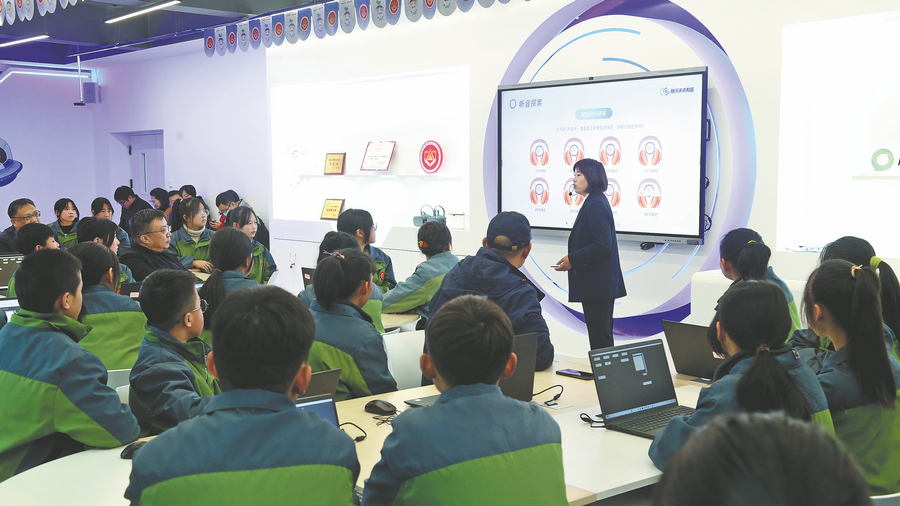

"The association has been focusing on the improvement of education in Wenxian over the past 25 years," he says, adding that the association has initiated 11 projects to enhance locals' access to quality education over the past two years alone, covering 15 kindergartens, primary schools and middle schools across the county.
Through his investigations, Zhang found that many schools in the county hadn't upgraded their teaching equipment due to limited finances. For instance, old computers with outdated hardware components and slower processing speeds can often be found in local schools.
Local students' awareness of utilizing modern technologies for the improvement of their academic performance is relatively lower than their urban counterparts, he adds.
"We're making continuous efforts to bridge the digital divide between local teachers and students and their counterparts in more well-developed cities in East China."
"Nestled deep in the mountains, the children here have limited exposure to the outside world. It is our hope that advancements in education can transform their lives," Zhang says, explaining why they wanted to collaborate with Tencent in the building of the high-tech-empowered classroom.
Two years ago, Tencent launched the charity project "future classroom" which seeks to upgrade the hardware facilities in rural schools across the country and provide teachers and students there with free access to online educational resources. It is an indispensable part of Tencent's innovative minors guidance system, according to Zheng Zhong, director of Tencent Minors Guidance Center.
By the end of January, 36 such "classrooms" had been built and put into use in various cities across the country, including Enshi in Hubei province, Ya'an in Sichuan province and Shaoguan in Guangdong province, providing accessibility to the technology to more than 169,800 students. Among them, 5,623 students have participated in various programming competitions.
Yu Jinghui, 12, a student from the mountainous county of Ruyuan Yao autonomous county, in Shaoguan, is a beneficiary of the project.
Early last year, a classroom equipped with computers loaded with programming software, 3D printers, circuit boards and chips for making remote-controlled cars was built in his school.
After that, instructed by IT teachers, Yu started to learn programming. Four months later, during his summer holidays between carrying out work on the farm at home, he coded a game named Girl's Smart Wardrobe.
The game asks users to first choose a desired destination or a certain occasion. Then the wardrobe offers clothes for the girl in the game to wear to help her create a specific look that is suitable for the occasion. "I've been wanting to make such kind of smart wardrobe for my sister for a long time. Hopefully one day I can create a real one for her," says Jinghui.
The coding project enabled him to win the first prize in a provincial network originality competition last year.
"Coding can help me to realize my dreams in the virtual world, which brings me a strong sense of achievement," he says. "And my logical thinking and hands-on abilities have also been honed during the process."
To further connect those beneficiaries of the project, Tencent launched a WeChat mini program as an online platform for teachers and students to share the advancements they've made in learning science and technology-related subjects and to discuss and brainstorm solutions to problems they might encounter. The platform has, so far, attracted nearly 40,000 users.
Contact the writer at xingwen@chinadaily.com.cn